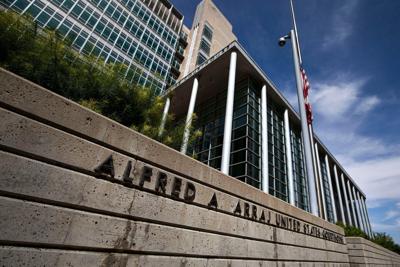
If the United States (U.S.) were to take over Gaza, it would trigger fierce Palestinian resistance, potentially mirroring the American incursion in Iraq.
The ongoing Israel-Palestine conflict has taken various turns, and amid the devastation in Gaza, a hypothetical U.S. takeover would provoke serious questions about Palestinian resistance, regional geopolitics, and global reactions.

Let’s explore whether Palestinians would prefer death over forced displacement, how this scenario might resemble the U.S. incursion in Iraq, and the potential ramifications for the Middle East and beyond.
Would Palestinians Choose Death Over Deportation? The idea of mass deportation of Palestinians has long been a subject of concern, with some Israeli politicians even proposing the idea of transferring Gaza’s population elsewhere. However, history suggests that Palestinians would overwhelmingly resist such a fate, even if it meant death. Historical Resistance to Displacement The Palestinian identity is deeply tied to land and history.
Since the Nakba in 1948, when over 700,000 Palestinians were forcibly expelled from their homes, the Palestinian struggle has centered around the right to self-determination and return. This attachment makes forced deportation an existential threat to their identity. The Siege Mentality and Martyrdom Culture: Decades of occupation, blockades, and wars have cultivated a strong siege mentality among Palestinians.
Many see resistance—armed or unarmed—as a duty rather than an option. The high civilian death toll in Gaza suggests that many already endure severe hardship rather than flee. In previous wars, including the 2014 Gaza War, Palestinian civilians often refused to leave, despite bombings.
The destruction of refugee camps in Lebanon and massacres in places like Sabra and Shatila reinforced the belief that exile is not safety but a permanent state of suffering.The psychological trauma of repeated displacement has made many Palestinians unwilling to leave, even at the risk of death. Politically, mass deportation would mean the loss of a bargaining position for any future Palestinian state, which Palestinian factions would resist fiercely.
In this context, if the U.S. were to take over Gaza with the intention of forcefully removing its population, mass resistance—including violent opposition—would likely occur.
The idea of a U.S. military takeover of Gaza draws immediate parallels to Iraq, where American intervention led to prolonged instability.
There are several similarities and differences between these scenarios: Just as Iraqis, including insurgent groups, resisted U.S. occupation from 2003 onwards, Palestinians—both civilians and militant groups—would likely wage an intense resistance campaign against American forces in Gaza.
In Iraq, the U.S. invasion exacerbated Sunni-Shia tensions.
In Gaza, an American presence could deepen divisions between Palestinian factions, such as Hamas and the Palestinian Authority, while also increasing hostility toward moderate Arab states. The U.S.
faced immense international criticism over Iraq, particularly for the humanitarian crisis and allegations of war crimes. A similar intervention in Gaza would likely trigger worldwide protests, diplomatic isolation, and accusations of neo-colonialism. The U.
S. presence in Iraq gave rise to militant groups like ISIS. Similarly, an occupation of Gaza could lead to the emergence of new extremist factions, further destabilizing the region.
The U.S. invaded Iraq under the pretext of eliminating weapons of mass destruction and toppling Saddam Hussein.
In Gaza, America has no direct economic or strategic interest beyond supporting Israel. This lack of vested interest might make prolonged occupation less likely. Unlike in Iraq, where the U.
S. acted largely unilaterally, any intervention in Gaza would be intricately tied to Israel’s security agenda. This complicates matters, as Washington would have to balance Israeli objectives with its own diplomatic and humanitarian considerations.
Gaza is one of the most densely populated areas in the world, making it a far more difficult battleground than Iraq. The resistance would be immediate, and the humanitarian crisis would be even more severe than what was seen in Baghdad or Fallujah. Despite these differences, the fundamental outcome of a U.
S. takeover of Gaza would likely mirror the Iraq invasion—a prolonged occupation with heavy casualties, growing insurgencies, and long-term regional instability. The international community would react strongly to an American military takeover of Gaza, with varying degrees of condemnation and strategic recalibration.
United Nations and European Union The UN would almost certainly condemn any U.S. intervention, as it has consistently opposed unilateral military actions.
European nations, which have been critical of U.S. actions in the Middle East, would likely impose diplomatic or economic sanctions.
Russia and China Both Russia and China would use an American takeover of Gaza as further proof of U.S. imperialism.
They would likely push for stronger alliances with Arab and Muslim-majority countries, possibly providing indirect support to Palestinian resistance groups. Global Protests and Boycotts From London to Jakarta, massive protests would erupt against U.S.
intervention. The Boycott, Divestment, and Sanctions (BDS) movement would gain new momentum, targeting American businesses and interests worldwide. Increased Terror Threats The U.
S. intervention in Iraq led to a surge in anti-American sentiment, fueling terrorist recruitment. A takeover of Gaza would have a similar effect, with groups like Al-Qaeda and ISIS exploiting the situation to justify attacks against American interests globally.
Arab-American Reaction Arab-Americans have historically opposed U.S. intervention in the Middle East, and a military occupation of Gaza would provoke outrage within this community.
Arab-American advocacy groups, such as the American-Arab Anti-Discrimination Committee (ADC) and the Council on American-Islamic Relations (CAIR), would ramp up protests, lobbying efforts, and lawsuits against the U.S. government.
Many Arab-Americans lean Democratic, but a Gaza intervention could fracture their support. Progressive lawmakers who have criticized Israel’s actions in Gaza would face immense pressure to oppose any U.S.
military involvement. Just as the Iraq War sparked anti-war protests across the U.S.
, a military takeover of Gaza could lead to mass demonstrations, civil disobedience, and clashes with law enforcement, particularly in cities with large Arab-American populations. Middle East Realignment and Geopolitical Landscape A U.S.
occupation of Gaza would cause significant shifts in the Middle East’s power structure, leading to realignments among regional players. Iran, already a major backer of Palestinian militant groups, would use the U.S.
presence in Gaza to expand its influence. It could strengthen ties with Hamas, Hezbollah, and other resistance factions, escalating tensions with both Israel and the U.S.
Turkey and Qatar, which have positioned themselves as allies of the Palestinians, would likely challenge the U.S. intervention diplomatically and financially support resistance efforts.
Saudi Arabia, which has been moving toward normalization with Israel, would face internal backlash. Riyadh might be forced to distance itself from Washington or risk domestic instability. Egypt and Jordan’s Balancing Act: Both countries, bordering Israel and Gaza, would face a refugee crisis.
Their governments would have to navigate the political fallout carefully, balancing their peace treaties with Israel against domestic anger. If the U.S.
were to take over Gaza, it would trigger fierce Palestinian resistance, potentially mirroring the American incursion in Iraq. The world would condemn the move, and Arab-Americans would mobilize against it. Meanwhile, the Middle East would undergo major geopolitical shifts, with Iran, Turkey, and other regional players reshaping alliances.
Ultimately, such an intervention would deepen instability rather than resolve the crisis, making it an unviable option for U.S. foreign policy.
• Uche J. Udenka is a Social & Political Analyst #AfricaVisionAdvancementTrust.















